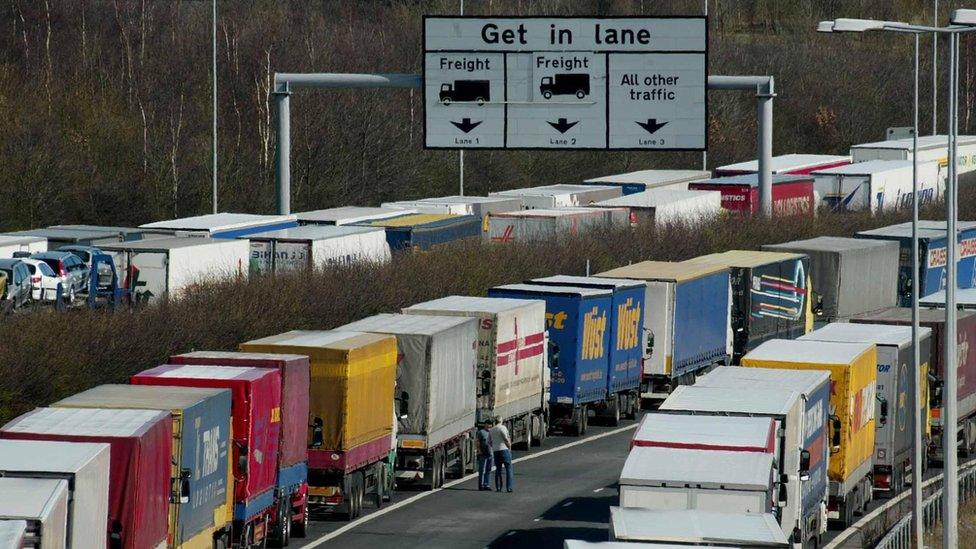Brexit: EU leaders plan for no deal as other options dissolve
- Published
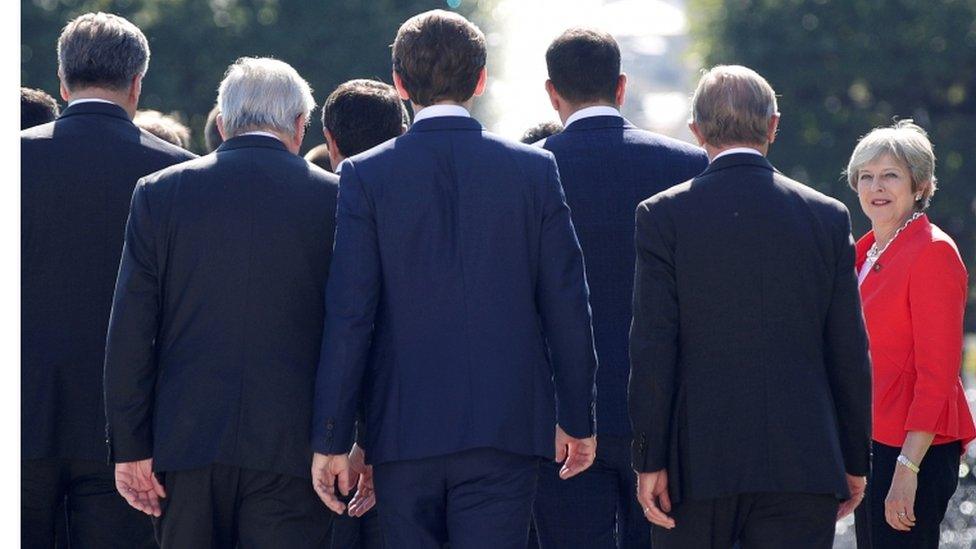
Theresa May stood out from the crowd at an informal EU leaders summit back in September
EU leaders head into this weekend with a heavy heart. They know, in theory, that all Brexit options remain on the table and they haven't entirely given up hope of a negotiated UK departure, but there is little trust here that the prime minister or Parliament will manage to pull it off.
Despite all the drama, the money and time spent by EU leaders on Brexit over the last two years (summits, dedicated governmental departments, no-deal planning), all the hard, hard graft put in by the EU and UK negotiating teams, Europe's leaders are asking themselves what there is to show for it all.
Ongoing Brexit divisions in parliament, in government and in Theresa May's cabinet were on screaming technicolour display again last week.
EU leaders used to use the threat of a no-deal Brexit as a negotiating tactic (as did the UK). They now believe it to be a very real prospect.
That has led to a number of countries - notably France - questioning the logic of delaying Brexit for much longer.
They wonder if the UK will ever unite around a Brexit Way Forward - be it a softer Brexit, no deal or no Brexit.
Would a Brexit extension, allowing for a general election or a second referendum, really settle the issue, they ask?
Or will the EU and UK end up in a no deal scenario anyway, after countless extra months of agonising (and costly) uncertainty?
France's President Macron - suffering from sagging popularity ratings at home - is hell-bent on breathing life in to the European project.
He is far from excited at the idea of having a recalcitrant UK - with 8.5 toes already out of the club - overshadowing proceedings for the immediate future.
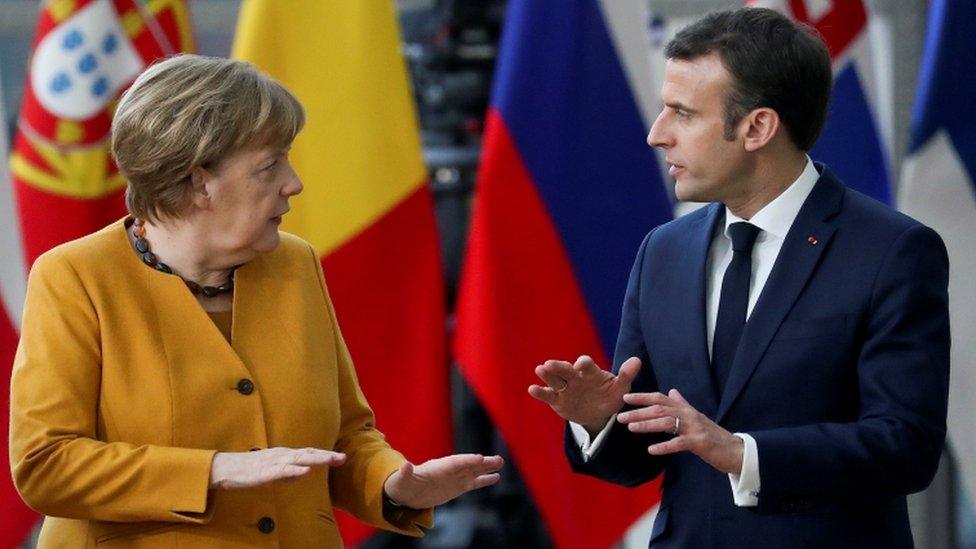
German Chancellor Angela Merkel and French President Emmanuel Macron spoke at a EU leaders summit last week
In the next few months, the EU holds decisive elections for the European parliament, where populist nationalists are predicted to make a strong showing. New European Commission and European Council presidents will need to be chosen and the next EU budget should be decided this autumn. The French president is not alone in worrying that an in-the-process-of leaving UK could throw a spanner in the works if it so chose.
This is not to say that the answer will be no if the prime minister comes to the emergency Brexit summit of EU leaders on 10 April, asking for a longer delay.
But there is a lively debate right now in EU circles about the virtue of granting the UK (by law all EU countries must come to a unanimous decision) a longer Brexit delay vs no deal in April or May. Of course no deal would be costly for the EU too, but for some, it's beginning to look like the best of a bunch of bad options.
Treating a no-deal Brexit as a looming, very real possibility, rather than a distant, highly unlikely prospect, is making the EU take a long, hard look at its own no-deal planning.
At every opportunity, in press statements and tweets, EU leaders boast that they are fully prepared- but that is not entirely true.
Some countries and businesses are better prepared than others, but there are two hot potato political issues that - up until now - EU leaders have shied away from confronting.
No longer.
Spain is now being told to stop trying to score points - however small - over Gibraltar. Madrid's insistence on describing the Rock as a UK colony has held up finalising a document ensuring EU-wide, visa-free travel for UK citizens throughout the EU in case of no deal.
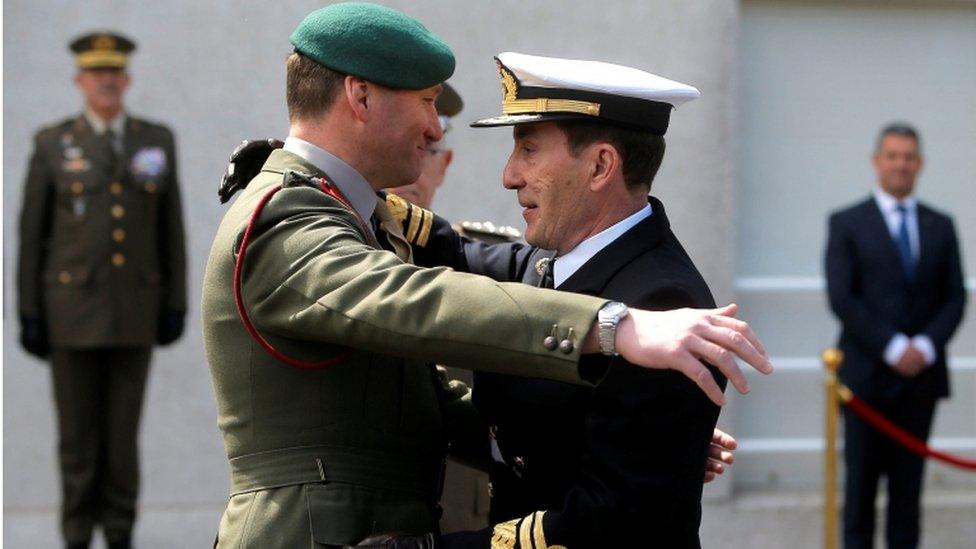
UK and Spanish naval officers embraced as they handed over authority of the EU's Operation Atalanta on Friday, but relations over Gibraltar are more hostile
But the EU's main no deal planning concern is the Irish border.
Leaders are beginning to lean on Dublin now to finesse its plans for the border with Northern Ireland in case of a no deal Brexit. The Irish government has kept plans vague until now because the idea of border checks is politically so sensitive on the island. But Brussels believes checks and some physical infrastructure will be needed, even if it's away from the border itself.
Germany's Angela Merkel is scheduled to fly to Dublin next week.
Whatever happens with Brexit, she and other European leaders want to make sure their single market will be protected.
- Published28 March 2019
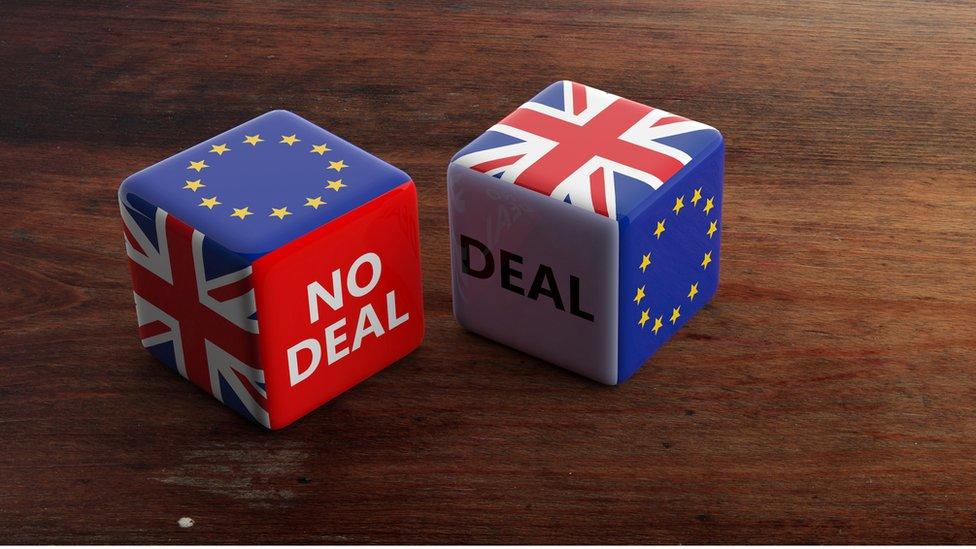
- Published11 March 2019
- Published30 March 2019
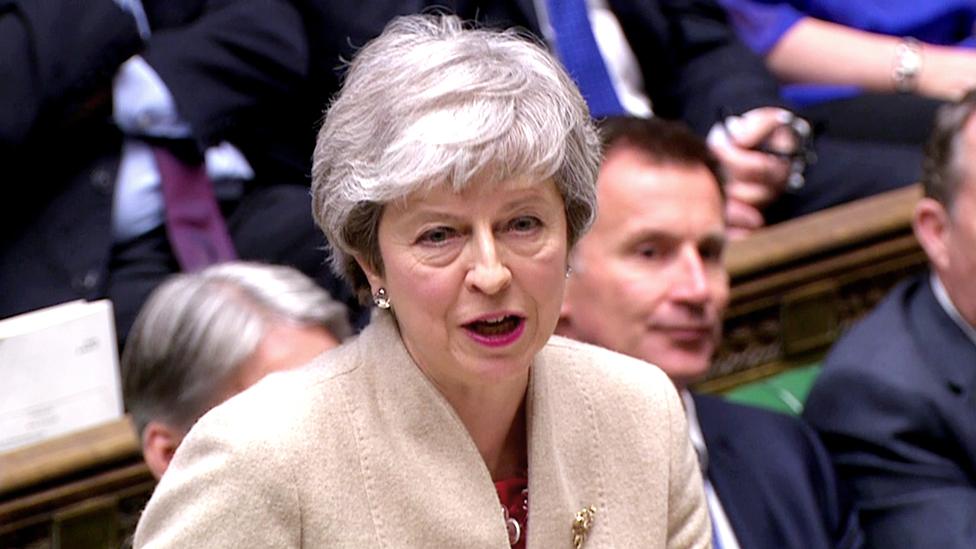
- Published29 March 2019
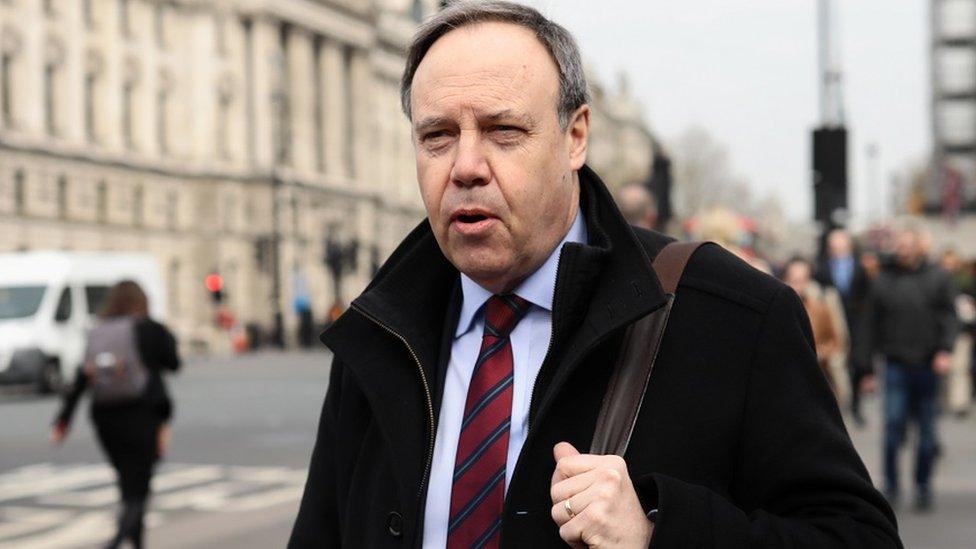
- Published29 March 2019
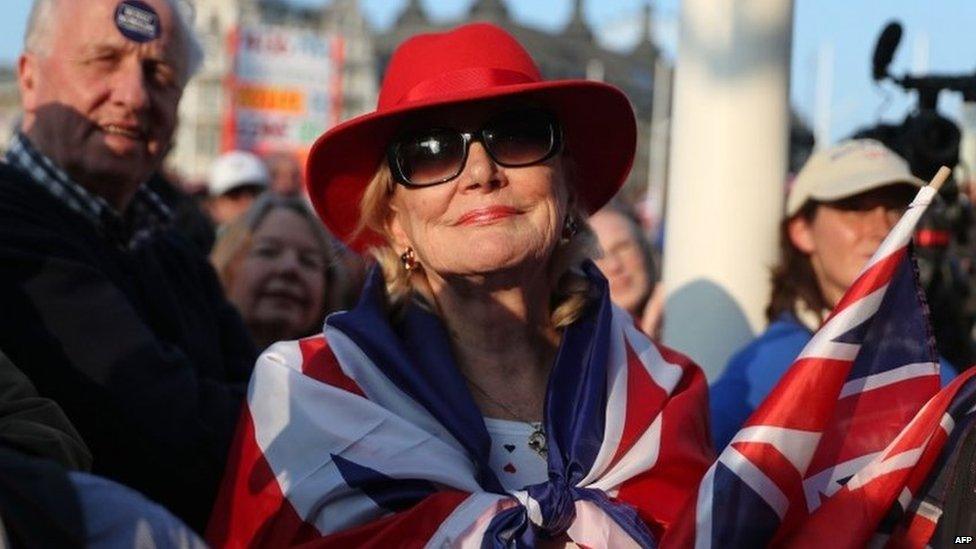
- Published29 March 2019
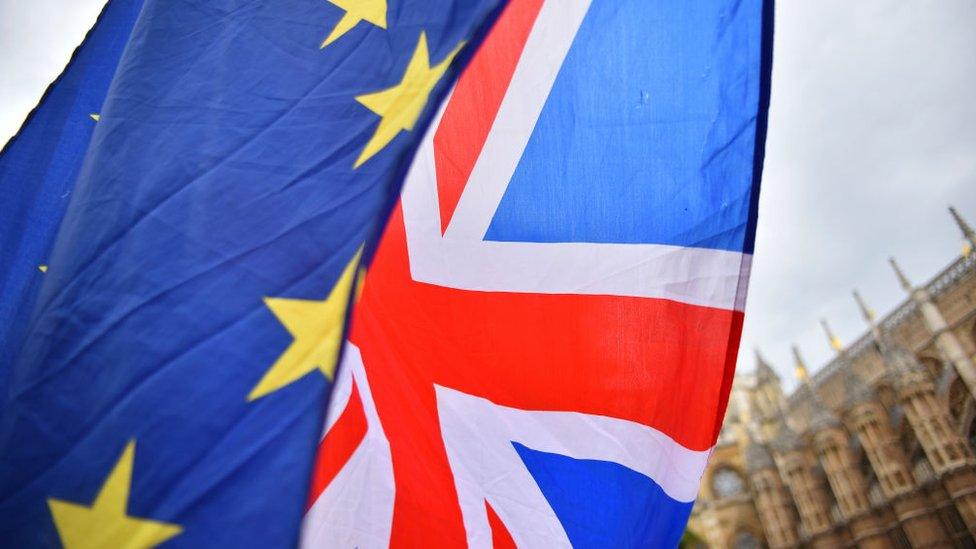
- Published28 March 2019
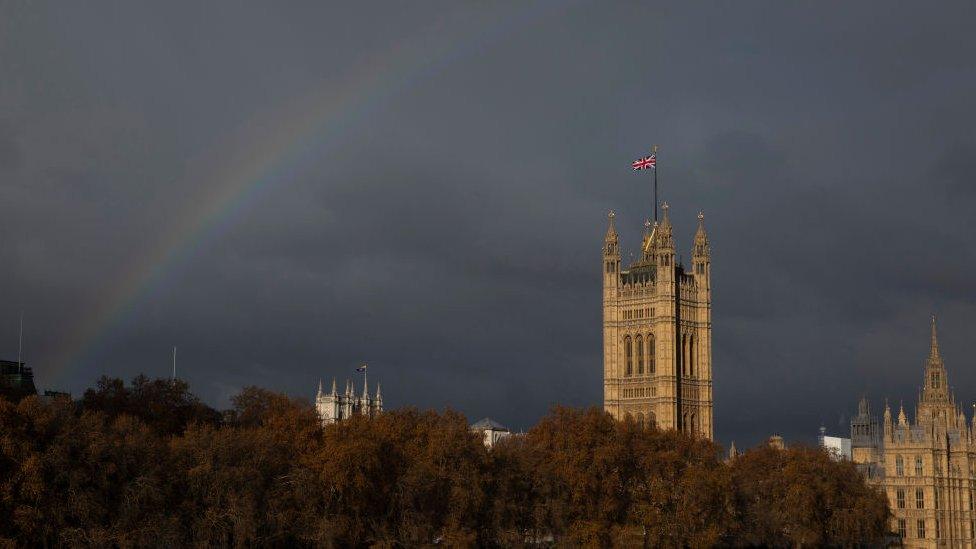
- Published21 March 2019
